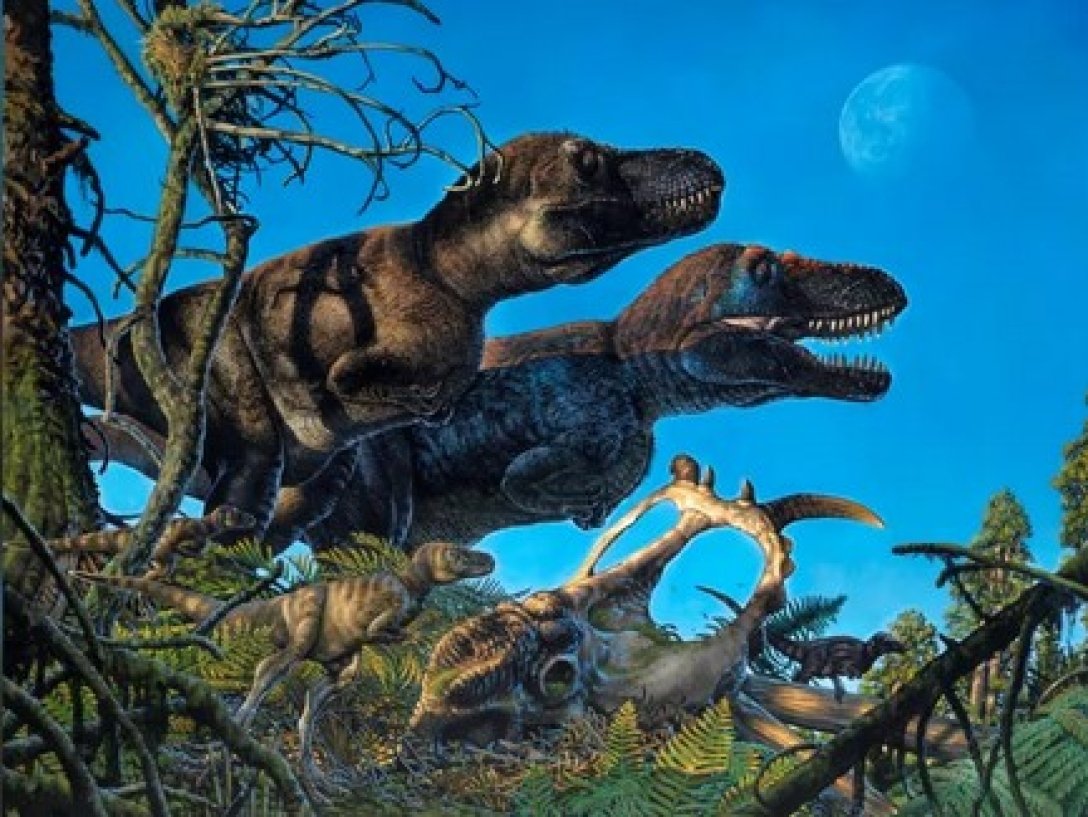What would our planet look like if dinosaurs had survived? Scientists' insights might surprise you (with photos).
Approximately 66 million years ago, a fateful day arrived for nearly all the dinosaurs that had inhabited our planet for almost 165 million years. An asteroid, about 15 km in diameter, struck the Earth in the region of present-day Mexico, leading to drastic climate changes, large-scale fires, and tsunamis. A massive amount of dust was propelled into the atmosphere, causing a significant reduction in sunlight and warmth. As a result of this catastrophic event, a mass extinction occurred on Earth, with around 75% of species, including almost all dinosaurs, vanishing within months of the asteroid's impact. Only small dinosaurs, the ancestors of modern birds, survived. But what would have happened to our planet if the asteroid had not collided with it? Could dinosaurs have evolved into an intelligent species and become the dominant life forms on Earth instead of humans? This is discussed by Live Science.
Could Dinosaurs Have Survived?
Brusatte believes that dinosaurs had every chance of surviving in a changing world if not for the asteroid impact. But could dinosaurs have endured the ice ages? The scientist thinks that it wouldn't have posed a significant problem for some of them. Many dinosaur species had feathers covering their bodies, and some were likely warm-blooded. This would have helped them survive in colder conditions. According to Brusatte, dinosaurs could have developed other means of cold protection, such as increasing the number of feathers on their bodies.

Could Dinosaurs Have Become Intelligent Beings?
If dinosaurs had not been wiped out, could they have evolved into an intelligent species? As early as the 1980s, a theory emerged suggesting that dinosaurs from the troodontid family could have transformed into intelligent beings and evolved into something resembling humanoids. This theory was based on the fact that troodontids had large brains, stereoscopic vision, opposable digits, and a bipedal body structure. Thus, they could have evolved into a creature with intelligence comparable to that of Homo sapiens, had they survived.

However, two years ago, scientists presented research indicating that no dinosaur species could have been the ancestor of primate-like beings that could evolve to human levels of intelligence. At the same time, modern birds demonstrate that dinosaurs might have been quite intelligent.
According to Brusatte, birds, which are descendants of surviving dinosaurs, are indeed intelligent. On average, their brains contain more neurons than those of mammals. But whether birds could evolve into intelligent beings over millions of years remains uncertain.
If Dinosaurs Had Not Gone Extinct, What Would Have Happened to Mammals?
Brusatte believes that the evolution of mammals would have taken a different path had the asteroid not wiped out the dinosaurs. If large dinosaurs had survived, smaller mammals that coexisted with them might not have had the opportunity to evolve and grow larger. However, it is possible that during the ice ages, mammals could have become larger, although it is unknown how diverse they would have become.
Humans Likely Would Not Exist on Earth
Even if the evolution of mammals allowed for some changes, that does not mean humans would have appeared on Earth. According to Paul Sereno from the University of Chicago, this is unlikely. The scientist states that humans evolved in a world dominated by mammals, but our emergence would have been impossible in a world where large dinosaurs also existed.
Scientists believe that the extinction of dinosaurs and competing groups of mammals may have allowed our primate ancestors to thrive and evolve, ultimately leading to the emergence of modern humans.